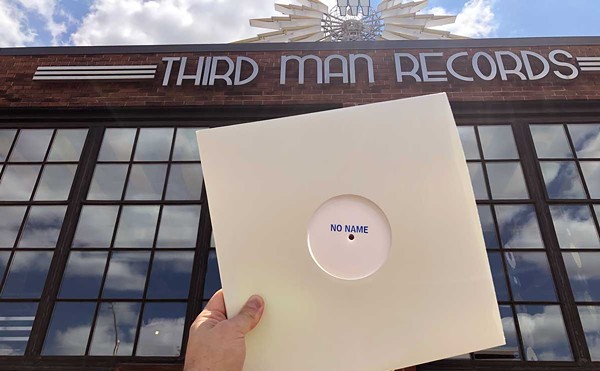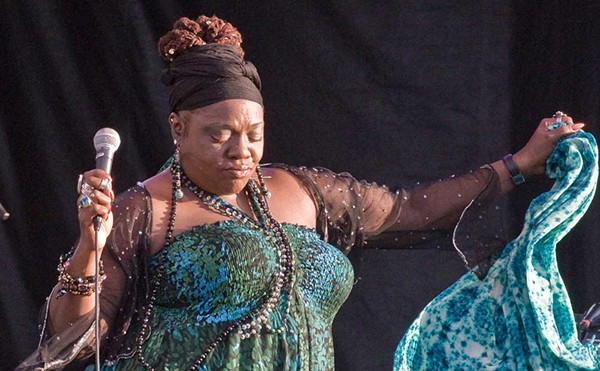Over the years, the emergence of alt-country music has offered much to its devotees. To listeners, it has provided thousands of hours of solace, jubilation and innocent fun in a rock ’n’ roll world. To its creators, the genre has offered an opportunity to marry the old with the new. And for those performers who have really nailed it — those who’ve made it legendary — there comes a lifetime of esteem and expectation.
“In a lot of ways, the fact that it was kind of an underground thing probably made it appealing to me,” says Jay Farrar, former member of twang-rock combo Uncle Tupelo, and current frontman for Son Volt.
Farrar has been through a lot over the last few years. After achieving an unprecedented level of indie success with Uncle Tupelo, he went on to endure the messy dissolution of his beloved band, as well as the evaporation of his friendship with former UT bandmate Jeff Tweedy. The story behind the separation is unclear. Though Tweedy has always been forthcoming with his side of the yarn, Farrar — for the most part — has been coy.
This much is known: Farrar and Tweedy met in high school, started Uncle Tupelo, put out three critically acclaimed albums, spent the early ’90s as college-radio darlings, and then broke up. Left in their wake were some of the most dedicated music fans in modern history, and some of the purest American rock ’n’ roll ever made. But what they each went on to create rattled the super-polished music biz from the inside out: Tweedy formed the decidedly terrific Wilco, and Farrar, Son Volt.
“I’ve spent years thinking we each deserve a better chance to get away from it — a fresh start,” Farrar says of the tiff with Tweedy. “Jeff seemed to like to talk about it. I was shocked at some of the stuff he was saying.”
Despite the fracas and uncomfortable competition between the two offshoots, Son Volt spent the late ’90s putting out solid country rock albums like Trace, Straightaways and Wide Swing Tremelo. All three received critical acclaim — enough to keep the band touring, and enough to hang on to the Uncle Tupelo fans.
But life on the road grew tiresome, and Farrar decided to settle down. He got married, started a family and took a much-needed hiatus from band life. For a few years, he worked alone. In 2003, he put out the introspective solo effort, Terroir Blues.
“I felt like I learned a lot from playing the songs more stripped-down,” he says. “I’d never done that before. I had a great time doing it.”
Unfortunately, the time off isolated most of Son Volt’s original lineup, and when it was time to regroup, they’d all moved on to other projects. The band’s latest release, Okemah and the Melody of Riot (named for the Oklahoma birthplace of Woody Guthrie) was recorded with an entirely new lineup — and contains some of the most heartfelt songs Farrar has written to date.
“My primary point of inspiration for this record was just getting back to the fundamentals of electric sound, which I had been away from for a while,” he says. “We only had rough demo versions of the songs when the band mobilized and headed into the studio. We really hadn’t done any shows or any recording as a group. We were working things out in the studio.
“It makes things more spontaneous using the approach we did — which was to do as much live as possible, to keep it organic and not analyze everything to death.”
The result couldn’t have been better. Okemah contains all the signature Farrar-styled loose country soul, but songs like “Bandages and Scars,” “Endless War” and “Jet Pilot” show a more politically minded front man.
“Maybe things were pissing me off,” Farrar says. “The bulk of the songs were written just prior to the election of 2004. I don’t want to be a political songwriter; it was just something I was feeling at the time.”
Such songs as “Medication,” a flowing drone of sitars, demonstrate Farrar’s deeply pensive side, and “Afterglow 61,” written about a popular stretch of Midwestern highway, could well be the year’s best road song.
Recharged by the new beginnings, Farrar says he’s in a very comfortable place — firmly planted back in the driver’s seat of Son Volt, and back doing what he does best: making us love him.
Sunday, Oct. 16 at the Majestic Theatre, 4140 Woodward Ave., Detroit; 313-833-9700. With the Fruitbats.
Jimmy Ansourian is a freelance writer. Send comments to [email protected]




